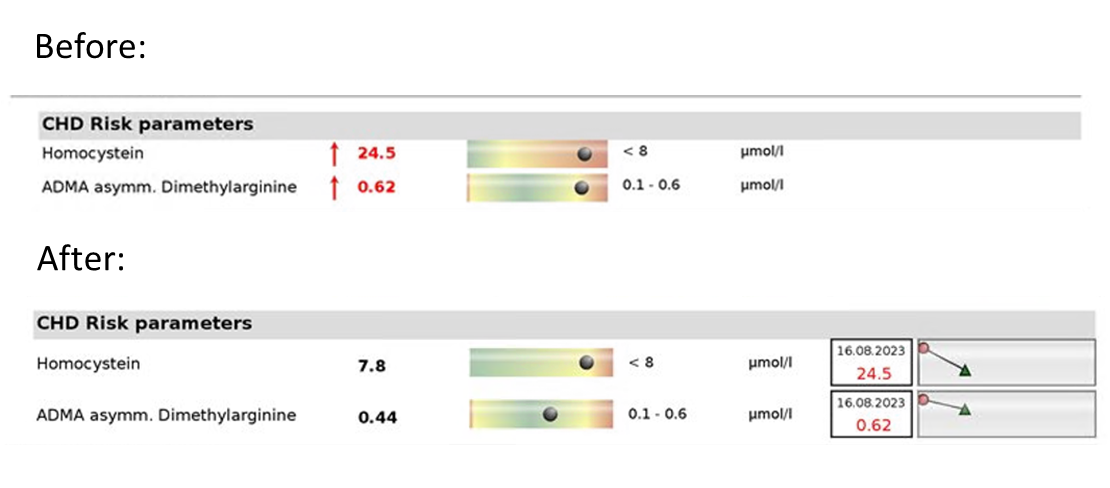Heart Health Profile


Heart Health Profile
€175.00 + phlebotomy and shipping
While most widely recognised, cholesterol is only one of many cardiovascular health markers and levels of triglycerides, HDL and LDL are much more meaningful than total cholesterol. The Heart Health profile also includes Lp(a), homocysteine and ADMA, biomarkers involved in inflammation and endothelial function, which impact blood flow and are independent markers of cardiovascular health.
Who can benefit from this test?
Your nutritionist may recommend this test if you have:
- Family/personal history of heart disease or stroke
- Obesity, abdominal obesity
- Diabetes
- High blood pressure
- Concerns about healthy ageing and disease prevention

Learn More about our Heart Health Profile
Blood test (phlebotomy)
The Heart Health Profile can give information about underlying heart health that may not be evident or giving obvious symptoms. Repeat testing can track improvements and give you a measure of how your nutritional or lifestyle changes are working for you.
Phlebotomy can be carried out at our Dublin clinic or locations around the country. Please enquire with our team. Phlebotomy carries an additional charge.
This test measures:
- Triglycerides
- Cholesterol, HDL/LDL ratio
- Lipoprotein(a)
- Apoprotein B
- Homocysteine
- ADMA marker of endothelial/ blood vessel damage
Works well with:
- Fibrinogen as a measure of clotting risk
- CRP as a measure of inflammation
- Blood sugars and Insulin Resistance test
Greg had high blood pressure and was also on cholesterol lowering medication. He was worried about healthy ageing and his risk for a cardiovascular event.
He carried out the Heart Health Profile to assess if there were any other modifiable factors that may impact on his heart disease risk. He had elevated homocysteine and ADMA, both independent risk factors for heart disease and blood vessel damage. He started a personalised dietary and supplement protocol to address this and both were reduced to normal range after 3 months. After this, he maintained a new healthier lifestyle to reduce his ongoing risk.
Key findings [excerpt from test]
- Cholesterol levels were well managed by medication
- Homocysteine was very high as a risk factor for heart disease, related to inflammation and poor methylation
- ADMA was raised, a marker of damage and inflammation in blood vessels
- Homocysteine and ADMA were reduced to normal range after a 3 month dietary and lifestyle protocol
